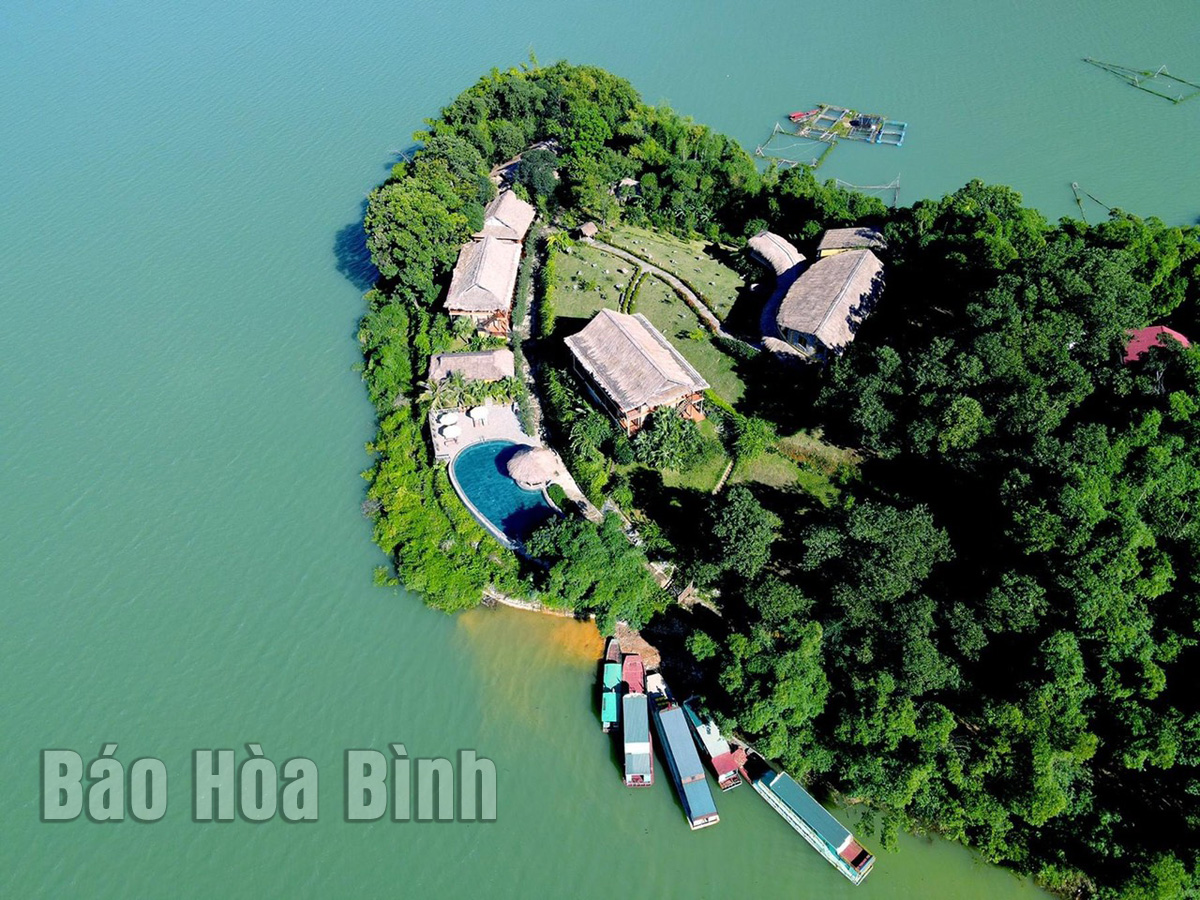
(HBO) – As the COVID-19 pandemic has been gradually controlled, more and more tourists have chosen Son Thuy commune in Mai Chau district as a destination for their holidays, with the number of visitors to the locality since the beginning of this year estimated at 20,000.
With the locality’s exploitation of its potential and
available advantages to develop ecological, community-based and experience
tourism, Son Thuy promises to become an ideal destination for tourists to
explore ethnic cultural identities, and enjoy the beautiful natural landscape
of the northwestern mountainous region.

A panorama of Mai Chau Hideaway Lake Resort in Suoi
Lon hamlet, Son Thuy commune (Mai Chau)
Son Thuy commune has five hamlets adjacent to Hoa Binh lake,
whose advantages are unspoiled natural landscapes, fresh and cool climate, and
convenient transport. It is also home to the Muong, Dao, Thai, Mong, Kinh and
Tay ethnic groups, creating unique features, customs and habits of each ethnic
group in terms of cuisine, cultural lifestyles and costume.
In addition to focusing on exploiting the strength of
ecotourism, many households have invested capital in improving facilities and
building community-based tourist sites. The commune currently has seven
households involved in homestay service in Suoi Lon, Khan Ha and San Sop
hamlets. Visiting here, tourists can learn about cultural identities and
traditional customs and habits of ethnic groups; visit caves, experience
kayaking and trekking; and enjoy local dishes.
Bui Van Dong, Chairman of the commune People's Committee
said: "Making the most of potential and available advantages to develop
tourism into a spearhead economic sector has helped raise people's incomes and
promote economic development. In the coming time, the commune’s Party Committee
and authorities will continue to strengthen the promotion to attract more
investors in tourism development”.
He expressed his hope to receive funding to upgrade
essential infrastructure systems such as electricity, roads and water for daily
activities, and create more unique tourism products, attracting tourists to
visit and experience./.
Located just a 20-minute drive from Hoa Binh City, Ora Hill Farmstay & Glamping Hoa Binh is a captivating new destination nestled in Mo hamlet, Bình Thanh commune, Cao Phong district. Combining farming with leisure, this tranquil retreat is perfect for those seeking balance, joy, and an immersive experience in the expansive beauty of nature.
Muong Bi - Tan Lac is renowned as one of the four famous Muong regions in Hoa Binh province. Blessed by nature with a favourable climate and stunning landscapes, Tan Lac holds great advantages for tourism development. The local tourism industry has made remarkable strides in recent times thanks to the attention and support from the local authorities and sectors.
With its strategic location, well-developed transport network, and diverse soil and climatic conditions, Hoa Binh is emerging as a must-visit destination in Vietnam's northwestern tourism corridor. The province boasts numerous attractions, including the Kim Boi hot springs (Kim Boi district), the Dau Rong cave complex (Cao Phong), the Mai Chau valley (Mai Chau), and the iconic Hoa Binh hydropower plant.
The northern mountainous province of Hoa Binh has been listed among the 71 most beautiful places to visit worldwide by the prestigious US travel magazine Condé Nast Traveller.
Hoa Binh province’s rich natural and cultural resources position it as a prime location for developing community-based tourism (CBT). In recent years, support from central and provincial policies, as well as assistance from non-governmental organisations, have encouraged local ethnic minority and mountainous communities to actively engage in the sector.



